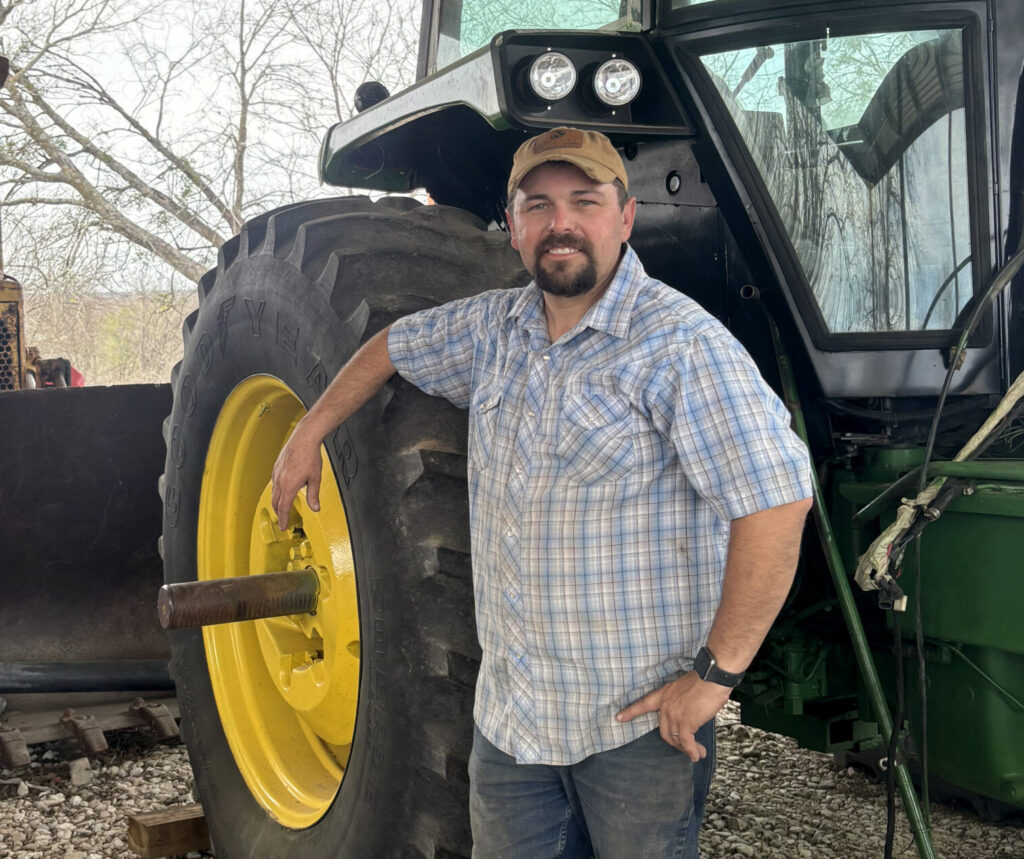Heartquist Hollow Farm began in 2017, as a family homestead where Christie Heartquist and her husband could teach their children about where food comes from. They found themselves continuing to add gardens and livestock until they eventually outgrew their space and expanded their homestead to a ranch in Winkelman, Arizona. There, a hobby has expanded into a business where they run livestock, operate their own USDA-inspected meat processing facility, and feed their community.
From the beginning, the Heartquists prided themselves on providing “hormone-free, steroid-free, vaccine-free, and antibiotic-free grass-fed and grass finished beef, pork, and lamb to the community.” However, they had not yet taken the step to become officially certified organic because of the complicated paperwork. “Trying to build something from the ground up, it’s hard,” Heartquist says. “You have to learn everything at once.” She, like many other producers, wasn’t sure how to navigate the process.
Through the Transition to Organic Partnership Program (TOPP), a nationwide initiative supporting transitioning and existing organic producers, Heartquist found assistance in the form of a robust mentorship program. The CCOF Foundation leads the West/Southwest Region of TOPP, which includes Heartquist’s state of Arizona.
The TOPP mentorship program builds connections between experienced organic producers and producers transitioning to organic, supports the transition process, and creates a stronger network of organic producers across the United States. Transitioning producers gain support, guidance, and development through receiving free mentorship from experienced organic producers. Mentors receive payment through the program so they can provide their mentees with valuable insights, practical advice, and industry best practices.
Once she signed up with TOPP’s mentoring program, Heartquist was paired with Sara Dolan, a deeply experienced farmer who is now providing Heartquist with the support and practical advice she needs to take her ranch across the organic finish line.
Heartquist meets with Dolan to go over details as she pursues certification for the ranch. The formal meetings are essential, but the most valuable thing to Heartquist is being able to reach out about questions that arise in the moment. “Knowing that I can pick up the phone any time and call her, and it won’t be a big deal—that is so fantastic.”
The TOPP mentorship program pairs transitioning and experienced organic producers like Heartquist and Dolan to demystify the process of transitioning to organic and support producers who are intimidated by the paperwork. This addresses a crucial need; nearly half of all TOPP organic support requests identify paperwork, cost, and/or minimal organic production knowledge as reasons for seeking assistance. TOPP mentorship bridges the gap for those interested in transitioning to USDA certified organic.
“To know that we’re feeding our community real food, food without any fillers, that was raised the right way,” Heartquist says, “it’s an honor to be able to do that.”


